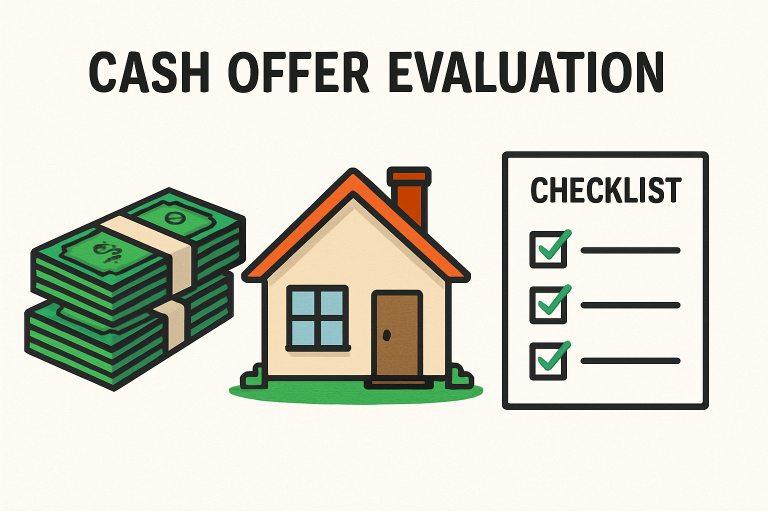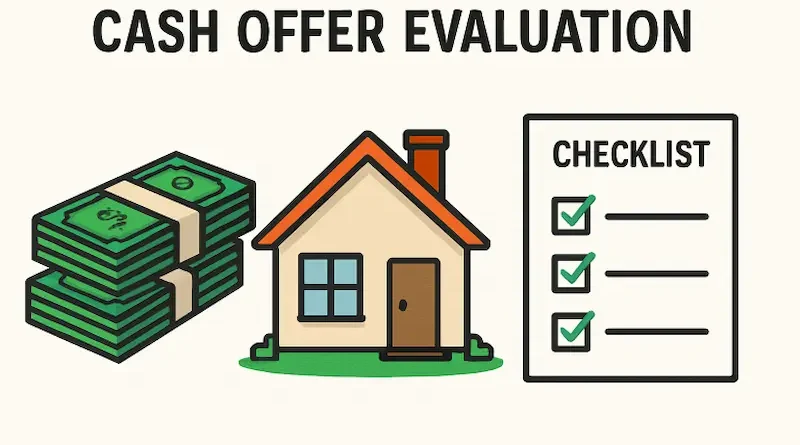How to Evaluate a Cash Offer on Your Home
Selling your home for cash can be tempting, especially if you want a quick and seamless transaction. With fewer contingencies and no dependency on mortgage approvals, the process can be much less stressful for sellers. However, it’s important to approach any cash offer with a discerning eye to ensure the deal aligns with your financial needs and long-term plans. For those in Kirkland and surrounding areas, properly evaluating a cash offer can protect you from leaving money on the table or choosing the wrong buyer. To start your journey, check out https://www.kindhousebuyers.com/wa/kirkland/. Fast home sales are especially attractive when you need to relocate, address urgent financial concerns, or want to avoid the traditional selling process. Cash buyers can often close in days, but not all offers are equal. Understanding how offers are calculated and what factors influence them will give you confidence and bargaining power. Consider your home’s condition, local market trends, and buyer credibility as you proceed with any offer.

Understanding Cash Offers
A cash offer means the buyer intends to purchase your home outright without needing mortgage financing. This can result in a much faster transaction with minimal risk of the deal falling through due to lender issues. According to Forbes, homeowners benefit from not waiting for loan approvals or appraisals, which often elongate traditional sales. Companies like Kind House Buyers – Tacoma specialize in quick, direct purchases, providing homeowners with a faster and more predictable selling experience. However, remember that cash buyers take on more risk and usually aim to renovate and resell their properties, which may be below full market value.
Assessing the Offer Amount
Most cash buyers present offers between 70% and 90% of your home’s after-repair value (ARV), minus the estimated costs of repairs and their required profit margin. For example, if your home’s ARV is $300,000 but it needs $20,000 in updates, a realistic cash offer might be calculated like this:
- ARV: $300,000
- 70% of ARV: $210,000
- Less repair costs: $20,000
- Cash offer: $190,000
This formula helps buyers ensure their investment remains profitable after improvements and resale. Understanding these calculations can guide your expectations and negotiation strategy.
Evaluating Your Home’s Condition
Your property’s condition directly influences the size of any cash offer. Homes with major repairs required—such as roofing, plumbing, or foundational work—will generally receive lower bids to account for future costs. Well-maintained or recently updated homes may warrant higher offers, reflecting their immediate resale potential. Consider investing in a professional appraisal or inspection before negotiation for an objective assessment. This step can affirm your asking price and counter unrealistic deductions from buyers.
Researching Comparable Sales
Checking recent comparable sales is essential for determining your home’s fair market value. Use local Multiple Listing Service (MLS) databases, real estate websites, and public records to find homes that match yours in size, condition, and location. This data creates a strong benchmark and empowers you to recognize a fair price when you see one.
Verifying the Buyer’s Credibility
It’s critical to verify each potential buyer’s legitimacy. Requesting proof of funds—such as a bank or investment account statement—confirms the buyer’s purchasing power and intent. Research their reputation via online reviews, referrals, and by checking the Better Business Bureau (BBB) for complaints or ratings. Established buyers with a track record of smooth transactions minimize the risk of delays, sudden price drops, or last-minute cancellations.
Understanding the Closing Process
A major appeal of cash offers is the possibility of closing within days rather than weeks or months. However, closing timelines still vary depending on the buyer’s process and your individual needs. Ensure all terms—including closing date, contingencies, and conditions—are clearly stated in the contract. Questions about earnest money deposits and how closing costs will be split should be addressed to avoid misunderstandings.
Considering Additional Costs
While cash transactions can save you agent commissions and certain lender fees, sellers sometimes overlook additional expenses like title fees, prorated taxes, and closing costs. Should a closing or move be delayed, holding costs may also apply. Ensure you clarify which party absorbs these fees so you’re not caught off guard when final figures are tallied.
Weighing the Pros and Cons
Before committing to a cash offer, think carefully about your priorities and the trade-offs of a fast sale:
- Pros: Quick closing, reduced uncertainty, typically no required repairs or staging.
- Cons: Lower overall sale price, fewer negotiation options, potential for hidden costs if not thoroughly reviewed.
A verified cash buyer can be a strong choice if your goal is a speedy, reliable sale without the headaches of traditional listing. However, you may achieve a higher sale price if you can wait for multiple offers or market your home conventionally.
Making an informed decision about a cash offer involves research, realistic expectations, and understanding your situation. Stay diligent, carefully review all documents, and work with known, reliable buyers for the smoothest experience.
Final Thoughts
Selling for cash can quickly solve urgent needs and remove many traditional sale headaches, but it often comes with a lower net price. Before accepting an offer, compare multiple bids, verify proof of funds, and have contracts reviewed by a real estate attorney or trusted advisor so you don’t trade speed for avoidable loss.

